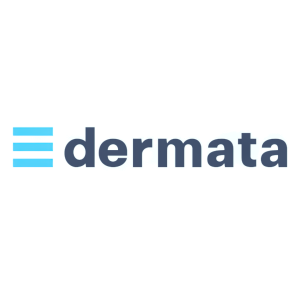Dermata Therapeutics Provides Corporate Update and Reports First Quarter 2024 Financial Results
Rhea-AI Summary
Dermata Therapeutics (Nasdaq: DRMA) reported its first quarter 2024 financial results and provided a corporate update. The company is on track with its DMT310 Phase 3 STAR-1 clinical trial for acne, aiming to complete enrollment by end of 2024 with topline data expected in Q1 2025. Dermata is also in discussions for partnerships for its botulinum toxin delivery program, DMT410, and has received a Japanese patent for treating hyperhidrosis. Financially, Dermata ended Q1 2024 with $4.7 million in cash, down from $7.4 million at the end of 2023, following a $3.1 million net loss. Expenses for R&D and G&A increased due to higher clinical trial and stock-based compensation costs.
Positive
- DMT310 Phase 3 STAR-1 clinical trial on track for completion by end of 2024.
- Topline data from STAR-1 expected in Q1 2025.
- Potential first-line treatment for acne if DMT310 is approved.
- Partnership discussions ongoing for DMT410 botulinum toxin delivery.
- Japanese patent received for DMT410 in hyperhidrosis treatment.
Negative
- Cash decreased from $7.4 million at end of 2023 to $4.7 million by March 31, 2024.
- Net loss of $3.1 million for Q1 2024.
- Research and development expenses increased to $1.6 million, up from $1.2 million year-over-year.
- General and administrative expenses rose to $1.6 million from $1.1 million year-over-year.
- Current cash resources expected to fund operations only into Q3 2024.
News Market Reaction 1 Alert
On the day this news was published, DRMA gained 5.05%, reflecting a notable positive market reaction.
Data tracked by StockTitan Argus on the day of publication.
- DMT310 Phase 3 Spongilla Treatment of Acne Research (STAR-1) clinical trial enrollment remains on track -
- Dermata continues discussions with potential botulinum toxin partners for DMT410 -
- Received issuance of Japanese patent for DMT410 for the treatment of hyperhidrosis -
SAN DIEGO, CA / ACCESSWIRE / May 15, 2024 / Dermata Therapeutics, Inc. (Nasdaq:DRMA)(Nasdaq;DRMAW) ("Dermata," or the "Company"), a late-stage biotechnology company focused on the treatment of medical and aesthetic skin diseases and conditions, today highlighted recent corporate progress and reported financial results for the first quarter ended March 31, 2024.

"We are very encouraged by the enrollment numbers to date of our STAR-1 clinical trial in acne and we are on track to complete enrollment by the end of 2024," commented Gerry Proehl, Dermata's Chairman, President, and Chief Executive Officer. "With very few competing Phase 3 acne studies, we are confident in our team's ability to get our STAR-1 study fully enrolled this year, with topline data expected in the first quarter of 2025. If positive, we believe this would put us in a strong position to initiate the second Phase 3 study quickly thereafter, while we also explore potential partnership opportunities for DMT310," continued Mr. Proehl. "Based on recent findings in the acne space, we believe if DMT310 is approved as a once-weekly topical acne treatment, it could be a first-line treatment option for the over 32 million diagnosed patients suffering from acne in the US," concluded Mr. Proehl.
Anticipated Upcoming Milestones
- Complete DMT310 Phase 3 STAR-1 clinical trial in moderate-to-severe acne. Based on enrollment projections, Dermata expects to receive topline results from STAR-1 in the first quarter of 2025. STAR-1 is the first of two Phase 3 clinical trials, plus a long-term extension study, the Company will need to complete prior to filing a new drug application.
- DMT410 Partnership Discussions. The Company continues to make progress on partnership discussions for its DMT410 program for the topical delivery of botulinum toxin. DMT410 is the Company's combination treatment regimen that uses the unique mechanical features of the Company's Spongilla technology to facilitate the intradermal delivery of botulinum toxin by topical application rather than through multiple injections with a needle. The Company has successfully completed proof-of-concept Phase 1 clinical trials using DMT410 in combination with BOTOX® for the treatment of primary axillary hyperhidrosis and for the treatment of multiple aesthetic skin conditions.
First Quarter 2024 Financial Results
As of March 31, 2024, the Company had
Research and development expenses were
General and administrative expenses were
About Dermata Therapeutics
Dermata Therapeutics, Inc. is a late-stage biotechnology company focusing on the treatment of medical and aesthetic skin diseases and conditions. The Company's lead product candidate, DMT310, is the Company's first product candidate being developed from its Spongilla technology platform and is currently being evaluated in a Phase 3 program. DMT310 is a once-weekly topical product candidate derived from a naturally sourced freshwater sponge with multiple unique mechanisms of action. DMT310 has been studied for the treatment of acne, rosacea, and psoriasis. The Company's second product candidate, DMT410, uses its Spongilla technology as a new method for topical intradermal delivery of botulinum toxin for the treatment of hyperhidrosis and multiple aesthetic skin conditions. Dermata is headquartered in San Diego, California. For more information, please visit http://www.dermatarx.com/.
Forward-Looking Statements
Statements in this press release that are not strictly historical in nature are forward-looking statements. These statements are based on the Company's current beliefs and expectations and new risks may emerge from time to time. Forward-looking statements are subject to known and unknown risks, uncertainties, assumptions, and other factors including, but are not limited to, statements related to: expectations with regard to the timing of meetings and/or responses from submissions with regulatory bodies; expectations with regard to the timing of submission of an NDA; the uncertainties inherent in clinical trials including enrolling an adequate number of patients on time or be completed on schedule, if at all; timing and ability to generate clinical data; expectations with regard to any potential partnership opportunities for any of the Company's product candidates; the Company's expectations with regard to current cash and cash equivalents and the amount of time it will fund operations; the success, cost, and timing of its product candidates DMT310 and DMT410 development activities and ongoing and planned clinical trials; and whether the results of any ongoing or planned clinical trials of DMT310 or DMT410 will lead to future product development. These statements are only predictions based on current information and expectations and involve a number of risks and uncertainties. Actual events or results may differ materially from those projected in any of such statements due to various factors, including the risks and uncertainties inherent in drug development, approval, and commercialization, and the fact that past results of clinical trials may not be indicative of future trial results. For a discussion of these and other factors, please refer to Dermata's filings with the Securities and Exchange Commission. You are cautioned not to place undue reliance on these forward-looking statements, which speak only as of the date hereof. This caution is made under the safe harbor provisions of the Private Securities Litigation Reform Act of 1995. All forward-looking statements are qualified in their entirety by this cautionary statement and Dermata undertakes no obligation to revise or update this press release to reflect events or circumstances after the date hereof, except as required by law.
DERMATA THERAPEUTICS, INC.
Balance Sheets
| March 31, 2024 | December 31, 2023 | |||||||
In thousands USD | (unaudited) | |||||||
Assets | ||||||||
Cash and cash equivalents | $ | 4,734 | $ | 7,438 | ||||
Prepaid expenses and other current assets | 446 | 541 | ||||||
Total assets | 5,180 | 7,979 | ||||||
Liabilities | ||||||||
Accounts payable | 823 | 866 | ||||||
Accrued liabilities | 549 | 757 | ||||||
Total liabilities | 1,372 | 1,623 | ||||||
Equity | 3,808 | 6,356 | ||||||
Total liabilities and equity | $ | 5,180 | $ | 7,979 | ||||
DERMATA THERAPEUTICS, INC.
Statements of Operations
(unaudited)
| Quarter Ended March 31, | ||||||||
In thousands, except share and per share data | 2024 | 2023 | ||||||
Operating expenses | ||||||||
Research and development (1) | $ | 1,600 | $ | 1,193 | ||||
General and administrative (1) | 1,603 | 1,085 | ||||||
Total operating expenses | 3,203 | 2,278 | ||||||
Loss from operations | (3,203 | ) | (2,278 | ) | ||||
Interest income, net | 69 | 38 | ||||||
Net loss | $ | (3,134 | ) | $ | (2,240 | ) | ||
Net loss per common share, basic and diluted | $ | (0.47 | ) | $ | (2.27 | ) | ||
Weighted average common shares outstanding, basic and diluted | 6,660,840 | 985,848 | ||||||
(1) Includes the following stock-based compensation expense | ||||||||
Research and development | $ | 237 | $ | 48 | ||||
General and administrative | $ | 350 | $ | 83 | ||||
Investors:
Sean Proehl
Associate General Counsel
info@dermatarx.com
SOURCE: Dermata Therapeutics
View the original press release on accesswire.com








